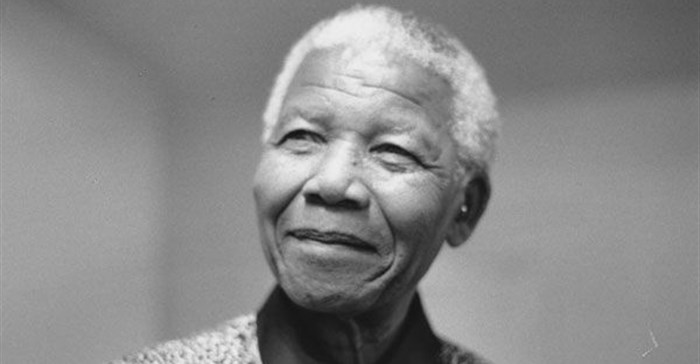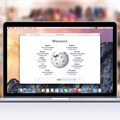#Mandela100: Using the spirit of Ubuntu to address knowledge gaps on Wikipedia

Did you know that Wikipedia is viewed 15-billion times a month, across one billion unique devices, in nearly 300 languages? Me neither.
On Friday, 20 July 2018, Wikipedia outlined the organisation’s 2030 movement strategy as well as its plans to escalate global content equity, at the Southern Sun Cape Sun Hotel on Strand Street.
Speakers included Katherine Maher, executive director of the Wikimedia Foundation, which is the NPO that supports Wikipedia, the Wikimedia free knowledge movement and its sister projects; Douglas Scott, president of Wikimedia ZA; and Banks Baker, head of global product partnerships search content at Google.
The encyclopedia for millennials
Undeniably the globe’s largest crowd-sourced knowledge-sharing platform – the encyclopedia for millennials, so to speak – Maher confirmed that the 2018 theme is 'bridging knowledge gaps – the Ubuntu way forward'.
The intention is to create a more rounded Wikipedia that continues to provide the sum of human knowledge to everyone everywhere, for free – bar data costs for access to the internet, of course, a huge factor here in Africa.
That’s why Africa can rejoice at the fact that the Wikimedia Foundation has partnered with Kiwix, the free, open-source software solution aimed at enabling offline access to educational content like that of Wikipedia, thereby addressing a gap in internet access.
Scott said:
Ubuntu is summarised as the philosophy of ‘I am because you are,’ or alternatively, ‘the belief in a universal bond of sharing that connects all humanity’. Volunteer community-driven projects like Wikipedia and what we are hoping to achieve at Wikimania in Cape Town capture this ethos well. Wikimedia South Africa is honoured to have this opportunity to share this spirit with our friends and colleagues around the world.Scott then further tightened the focus of that cause for celebration by thanking the Nelson Mandela Foundation for their donation of one of Madiba’s own written diaries to commemorate their theme of bridging knowledge gaps.
The diary is already live on Wikisource and Wikimedia Commons, their free media repository, and provides emotional insight into Madiba’s life in 1962, while on the move between SA and London, made all the more meaningful as you can read it in Mandela’s own handwriting.
Local knowledge, lost in translation?
Unfortunately, some of those aforementioned knowledge gaps arise because Wikipedia itself, started in 2001 as a collaborative creation, with 46 million articles already edited by millions of people at any time, is still seen as a global north project, with only 1.3% of edits coming from the African continent.
That’s why Maher said Wikimania 2018 represents a moment of maturity, and the Cape Town opportunity for next-phase engagement across the continent.
Wikipedia ZA president Douglas Scott highlights the importance of indigenous languages at this years #Wikimania2018 conference @WeekendArgus pic.twitter.com/LQsRDGxXA8
— Luke Folb (@lukefolb) July 20, 2018
In contrast, the Malagasy Wikipedia is the largest in Africa, with 84,996 articles as of July 2018, and Afrikaans is close behind, with 50,275 articles.
June 2018 African language Wikipedia update, 50 000 articles for Afrikaans #Wikimania #Wikimania2018 https://t.co/sDjI0lrqnj pic.twitter.com/vKSIMEjwZS
— WikiResearch (@WikiResearch) July 20, 2018
Research also shows that learning in a second language that’s not spoken in the home means 50% of that knowledge is lost in the transfer.
Nelson Mandela himself said it best:
If you talk to a man in a language he understands, that goes to his head. If you talk to him in his language, that goes to his heart.
Wiki Loves Africa, Wiki Loves Women
.@Wikipedia director Katherine Maher talks about the African initiatives at #Wikimania2018 @WeekendArgus pic.twitter.com/1uQoQ7RMXz
— Luke Folb (@lukefolb) July 20, 2018
Next, Baker explained how the Wikipedia vision of ‘a world in which every single human can freely share in the sum of all knowledge’ ties in with what Google stands for.
As a result, they have collaborated with the Wikimedia Foundation to expand and improve representation of knowledge in Indic languages on Wikipedia through Project Tiger.
Putting African knowledge on top
Baker said the new partnership aimed at providing unlimited access to information as they believe society is better when diverse voices are heard.
In answering questions from the floor, Maher mentioned that the traditional cylindrical Mercator projection map of the world with the North on top and therefore is a topic of debate on Wikipedia due to resulting problems with representation.
The Mercator Projection World maps do not accurately reflect the size and shape of the world pic.twitter.com/9V3cFJSPiS
— Business Insider (@businessinsider) July 17, 2018
Great initiative.
— Donnalee ���� (@DonnaTruly) July 16, 2018
(My fingers are crossed that these atlases do not use the traditional Mercator map, which shrinks Africa and enlargens US and Europe.) https://t.co/nLyKRYS1DD
Let’s all do our part to put Africa on top.
The main Wikimania conference continues until Sunday, 22 July. Click here for an example of the Mandela diary, here for more on Wikimania2018, and be sure to follow Wikimedia 2018’s Twitter, Instagram and Facebook feeds and the #Wikimania hashtag for the latest updates.










